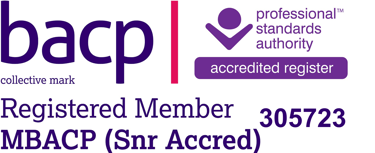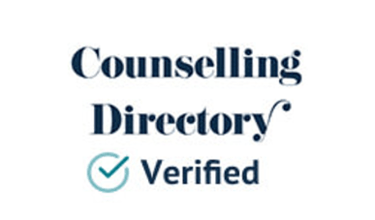Learning from Mistakes
Reflections on My Journey as a Therapist and Supervisor


Learning from Mistakes: Reflections on My Journey as a Therapist and Supervisor
One of the things I’ve learned over the years is that being a therapist isn’t about being perfect. Therapy is human work, and with that comes moments where we don’t get it quite right. Looking back, I can see times when I’d handle things differently today. Those mistakes and challenges have shaped me into a more grounded and reflective practitioner.
I want to share some of those reflections here. The examples are intentionally vague to protect confidentiality, but my hope is that they offer honesty, encouragement, and maybe even reassurance for therapists and supervisees who find themselves navigating similar experiences.
Confidentiality in Practice
When I was training, GDPR and data protection weren’t really taught in a clear, practical way. That meant when I first qualified, there were moments where I didn’t manage information as well as I could have—not through lack of care, but simply through gaps in training and understanding.
Those early mistakes gave me a sharper awareness of how essential it is to protect client information, and to be vigilant around both the ethical and practical sides of confidentiality. Over time, I developed better systems and a stronger grasp of what safe practice really means in this area.
Now, when supervisees bring confidentiality dilemmas, I feel far more confident in supporting them to think through the options, weigh up competing responsibilities, and hold the client at the centre. It feels like a shared learning space rather than something to be fearful of.
Ruptures in Supervision as a Supervisor
As a supervisor, I’ve had moments where my approach didn’t land well with supervisees. Sometimes I’ve been overly cautious or risk averse, advising steps that perhaps limited their confidence rather than supporting it. This came from wanting to protect both them and their clients, but I’ve since learned that supervision is about balance—holding risk responsibly, without disempowering the therapist.
I’ve also been struck by how often supervisees arrive with very little practical understanding of safeguarding. Training providers don’t always equip therapists-in-training with the depth of knowledge needed, particularly about how a person-centred framework sits alongside statutory duties. I’ve found myself doing a lot of teaching and coaching in this area, often without much support from training institutions. It’s been frustrating at times, but it’s also helped me value the role of supervision as a place for real-world learning, not just theoretical reflection.
More recently, I worked alongside a supervisee who was navigating a complex data-sharing request. Together, we explored the process step by step, drawing on ethical guidance and reflective practice. It was a collaborative experience where we both learned, and my supervisee fed back that they felt supported, prioritised, and held throughout. For me, it highlighted that supervision isn’t just about oversight—it’s about standing alongside another therapist in challenging moments.
Early Experiences with Supervision
When I first started out, I chose a supervisor whose style wasn’t the best fit for me. Their approach was quite structured and academic, which didn’t always sit comfortably alongside how I needed to work. At the time, I wasn’t experienced enough to recognise that this was about style and compatibility, not about me doing something “wrong”.
That experience gave me valuable insight into the importance of finding the right supervisor—someone whose way of working aligns with your own development needs. These days, I encourage supervisees to reflect on what kind of support feels most nourishing for them, and to see supervision as a relationship rather than just a requirement.
Managing Risk Around Historical Disclosures
One area I’ve struggled with has been how to handle risk when it relates to something historical rather than current. In the past, I didn’t always manage this as effectively as I could have—not because I wasn’t concerned, but because I lacked confidence in navigating the grey areas.
Over time, I’ve developed clearer frameworks for these situations. Recently, I worked with a supervisee who was uncertain about how to hold a complex piece of historical information. Instead of rushing to find a quick answer, we slowed down, looked at the ethical landscape together, and sought out appropriate consultation. My supervisee later shared that they felt reassured by the process, and I felt more grounded too. These kinds of collaborative moments remind me how much growth comes from reflection and shared decision-making.
Why These Reflections Matter
Sharing these experiences isn’t about undermining confidence in therapy or supervision. It’s about acknowledging that therapists and supervisors are human, and that we learn most through reflection on the times we didn’t get it right.
For me, every stumble has led to growth. I’m clearer about boundaries, braver in supervision, more confident in addressing risk, and more compassionate with myself and others.
If you’re a client reading this, I hope it reassures you that therapists keep learning, just like anyone else. If you’re a therapist or supervisee, perhaps it will encourage you to bring mistakes into the room rather than hiding them away. Because in my experience, it’s in those honest, uncomfortable conversations that the deepest learning takes place.






